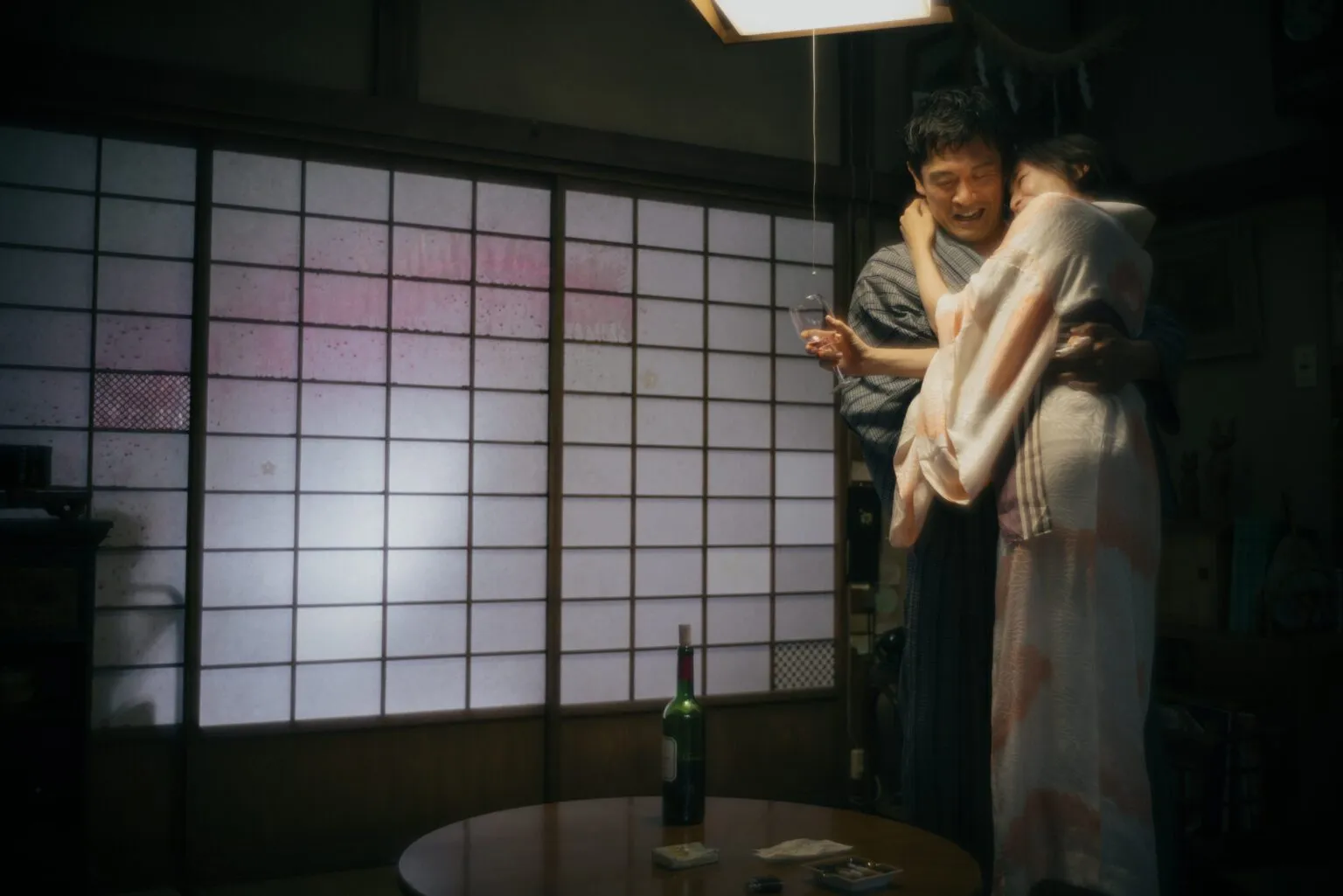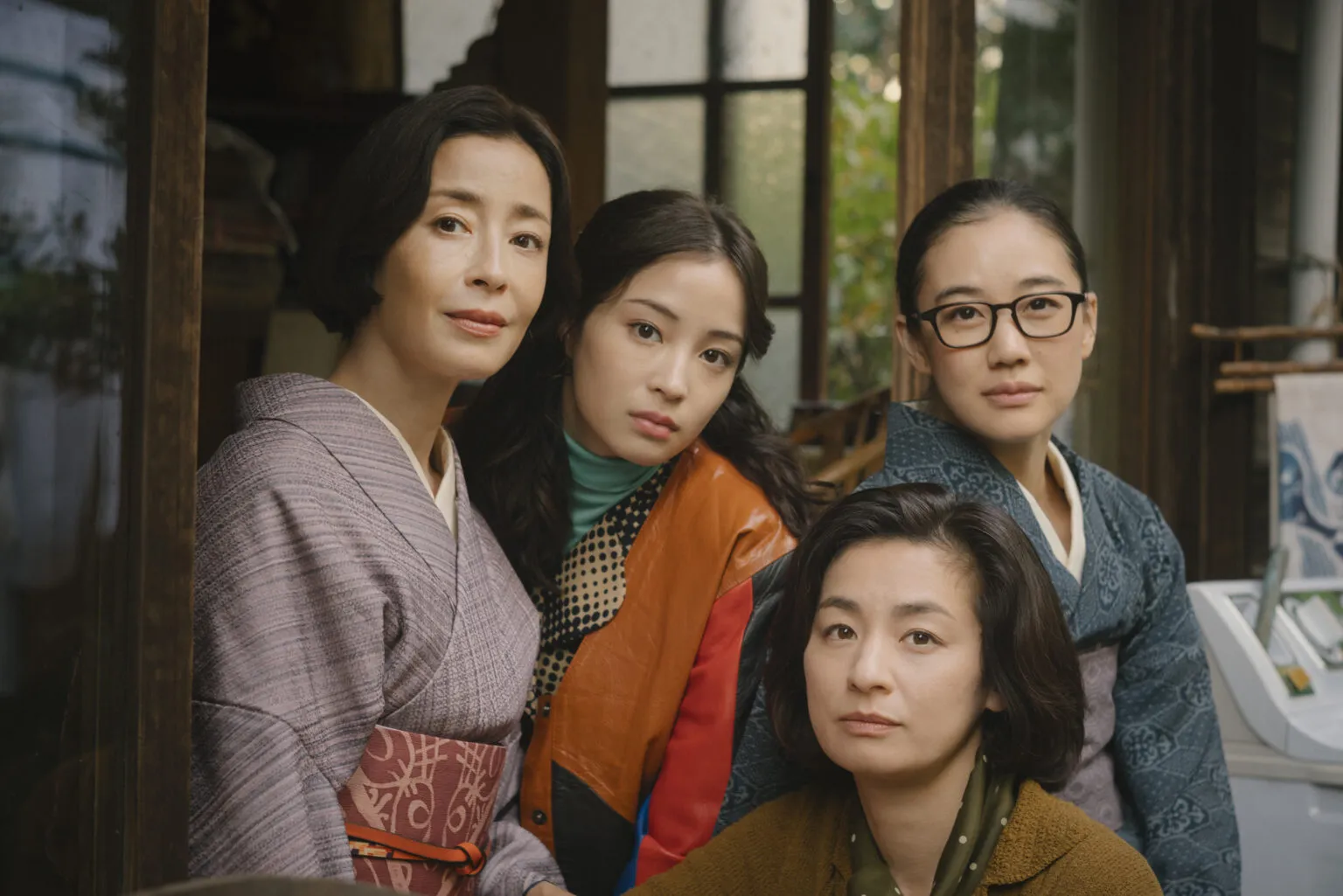Asura is a poignant examination of familial ties torn apart by the sneaky threads of infidelity set in the heart of Tokyo in 1979, where the echoes of tradition clash with the whispers of modernity. The central figure in this narrative is Kotaro, a father whose secret life shatters the thin veneer of his daughters’ existence while revealing the deep cracks in trust and identity that lie beneath.
Hirokazu Kore-eda, a master of telling compassionate stories, directs this adaptation of Mukoda Kuniko’s book with a delicate hand, creating a tapestry that invites us to ponder the complexities of interpersonal relationships. His film lens records what happens and the emotional landscapes that each character travels through, letting us see into their inner turmoils.
The series resonates with the weight of societal expectations because it is set against the backdrop of a society full of patriarchal norms. The year 1979 serves as a crucible, a time when women’s roles are both constrained and challenged, prompting a profound investigation into their autonomy.
While the sisters deal with their father’s betrayal, their journeys reflect bigger existential questions: How can love and betrayal coexist? And what shadows do our identities live in when the family is shaken as it is?
Fractured Bonds: The Plot of Asura
A father’s infidelity, a betrayal that has profound and unsettling effects on the lives of his four daughters, is at the heart of Asura. This revelation shakes the very fabric of the family. This main conflict spreads like a dark flower, with its petals revealing not only the act itself but all the different ways it affects their daily lives. The ground beneath their familial foundation trembles when Takiko, the youngest sister, discovers her father Kotaro’s double life, exposing the cracks that had been covered for a long time.
The revelation affects the sisters in various ways, including panic, resignation, anger, and complicity. Each sister is a unique reflection of their upbringing and social roles. The eldest, Tsunako, grapples with her hidden problems, revealing the hypocrisy that often hides in the shadows of righteous rage. As her doubts about her husband’s loyalty mirror the chaos caused by their father’s actions, Makiko, the responsible mother, turns her world upside down.
Then there’s Sakiko, who goes back and forth between being naive and being very aware of all the betrayals around her. The broader existential questions of identity, loyalty, and the struggle for autonomy within the constraints of familial duty are illuminated as each sister deals with the effects of their father’s decisions.
The narrative becomes more complex at crucial plot turns. A vulnerable gathering that reveals the painful truths they had all chosen to ignore is the result of the sisters’ collective choice to confront their mother, Fuji. As the layers of secrets are peeled back, Asura reveals not only the story of a broken family but also a thought experiment on the nature of love and the ominous threat of betrayal that could change how they are connected.
The revelations aren’t just plot devices; they’re philosophical explorations of the human condition, forcing each character—and, by extension, the audience—to face the shadows of their existence.
The Fractured Mirror: A Character Analysis of Asura
Each character in Asura represents the tumultuous intersection of personal desire and familial obligations. The Takezawa sisters appear as complex characters of a society with shifting moral landscapes. There are more than just arcs to each of their trips. They are existential explorations that make them question identity, loyalty, and the weight of heritage.
Takiko is the youngest and starts as a librarian whose calm exterior hides the storm that’s beginning to form inside her. Her finding out about her father’s infidelity acts as both a catalyst and a crucible, launching her into a storm of self-exploration. As Takiko hires a private investigator to find out what her father is hiding, her friendship with Katsumata, the investigator, grows even though her family no longer trusts her.
Can she embrace love while navigating the shadows cast by betrayal? This budding romance, full of irony, mirrors her internal conflict. Her evolution captures the mesmerizing conundrum of balancing personal desires with passed-down familial chaos, provoking viewers to ponder the fine line between self-discovery and the weight of custom.
The oldest sister, Tsunako, embodies the struggle between what society expects of you and what you want for yourself. She grapples with the duality of her existence—publicly the responsible daughter and widow, secretly a woman seeking agency in her own life—as a widow embroiled in a covert affair with her boss. Tsunako’s internal conflict mirrors the larger societal constraints placed on women at the time, forcing her to confront the paradox of love and action in her father’s actions and her life choices. Her journey raises poignant questions about happiness’s nature: Is it in following the rules or going against them?
Makiko, the model for the loyal housewife, presents a poignant study of repression. She embodies the silent pain of women who put on a front of domestic perfection as she navigates the complexities of her husband’s infidelity. Her inner turmoil, buried under layers of motherly duty, invites reflection on the silent sacrifices made in the name of familial duty. Through her struggle, we see how women are forced to accept their roles without question, even when their hearts break.
Sakiko, the youngest sister, has a different point of view. Her character arc goes back and forth between being naive as a child and realizing how hard relationships can be as an adult. She grapples with the duality of desire and loyalty as she navigates the turbulent waters of love with her boxer boyfriend. Her development sheds light on the frequently unnoticed battles of the younger generation, which are caught between familial expectations and the desire for individual identity.
Kotaro and Fuji, two supporting characters, give the narrative poignant anchors. Kotaro embodies the paradox of freedom and entrapment through his intricate relationship to infidelity. Even though his actions were wrong, they help us understand more about the human condition—the constant struggle between desire and duty. Fuji, the mother, stands as a silent guardian, representing inner conflict.
Existential questions about love’s endurance in the face of betrayal and women’s sacrifices to maintain familial unity are brought up by her knowledge of her husband’s betrayal and her steadfast acceptance. The characters in Asura become vehicles for exploring the darker, existential themes of love, loyalty, and the haunting ghost of choice through their interactions, allowing viewers to reflect on their own lives and the weak ties that bind us all together
Shadows of Betrayal: Themes and Cultural Commentary in Asura
In addition to revealing the emotional damage infidelity causes, Asura invites its audience into a perplexing investigation of infidelity. The Takezawa family’s fabric of trust is torn apart by Kotaro’s deeds, which serve as the narrative’s pivot.
The consequences of his betrayal are not just a series of accusations; they are a profound dissection of human relationships, exposing the frailty of love and the chilling truth that love can exist alongside lying. The sisters are forced to confront the upsetting truth that familial bonds that were once thought to be unbreakable can weaken under the weight of hidden truths as they each deal with their father’s infidelity.
In Japan in 1979, women were expected to follow a patriarchal system that limited their freedom and told them how to act. This mental turmoil was made worse by these expectations. In their world, the sisters have to deal with the tension between duty and desire because their worth is often judged by how well they follow standard roles.
Asura becomes a poignant commentary on the silent suffering of women who are expected to keep family honor while their own identities are suppressed in this context. What does it mean to be a woman in a world that frequently demands conformity at the cost of oneself? It is one of the series’ poignant questions.
The theme of sisterhood appears as a complex tapestry woven with unity and conflict against this backdrop of society. The Takezawa sisters are a perfect example of the complex nature of familial relationships because they alternate between love and resentment, support and competition. Their actions show how delicately sisterly bonds are balanced, reflecting how love is often tense and full of conflict.
They are brought together in times of trouble, but how they react differently to betrayal shows the cracks. Asura forces us to reflect on the complex dance of loyalty and individuality, forcing us to think about how the ties that bind us can also trap us in the shadows of our existence as they confront the realities of their lives.
The Art of Intimacy: Direction and Cinematography in Asura
Heyokazu The emotional depth of each scene in Kore-eda’s film Asura resonates with an authenticity that goes beyond the mechanics of the narrative, serving as a masterclass in character-driven storytelling. His cinematic lens catches the fragile threads of human connection, letting viewers inhabit the Takezawa sisters’ inner world.
Kore-eda’s style isn’t just about showing what happens; it’s also about exploring the subtleties of life, where every look and pause holds the weight of unsaid truths. The every day becomes profound in his hands, luring us to reflect on the complexities of familial love and betrayal.
Asura creates an emotional scene with its rich lighting, framing, and composition tapestry. The characters’ internal battles are reflected in the duality that mirrors their broken lives, created by the interaction of shadows and light. Kore-eda skillfully frames his stories so that characters are frequently left alone in their settings, making it clear that they are lonely even when surrounded by familial members.
In a world where secrets are always just below the surface, this method creates a sense of existential disconnect, prompting us to question the nature of intimacy. The series is grounded in visual poetry that echoes the darker, more contemplative themes that run throughout it as the camera lingers on moments of vulnerability and invites us to see the true humanity of each character.
The Sound of Shadows: Music and Atmosphere in Asura
With each poignant note, the music in Asura creates a spooky tapestry that echoes the narrative’s emotional undercurrents.
The score, which is understated but powerful, mirrors the characters’ inner battles, highlighting the tension and hopelessness that permeate their daily lives.
The audience is engulfed in an atmosphere full of unspoken truths as the melodies rise and fall, highlighting times of vulnerability and conflict.
This aural landscape adds to the drama unfolding and deepens our involvement, prompting us to reflect on the profound existential questions that hang in the air like an unresolved chord.
A Tapestry of Shadows: Final Thoughts on Asura
Asura is a poignant look at betrayal, identity, and the complicated web of familial ties, expertly portrayed by Kore-eda’s perceptive direction and deeply moving character performances.
Its emotional scenery is full of existential questions that stick with you long after the last frame, making you think about the nature of love and loyalty.
This series serves as a mirror reflecting the universal struggles of humanity in addition to illuminating the darker corners of modern Japanese drama.
Asura affirms its importance as a potent meditation on the complexities of the human experience through its careful balance of sadness and hope.
The Review
Asura
The Takezawa sisters' emotional turmoil is expertly portrayed against a backdrop of societal expectations and individual identity in Asura, a masterful study of the delicate interplay between love and betrayal. Kore-eda's direction, coupled with a haunting score, creates a poignant atmosphere that lasts long after watching. The series invites viewers to reflect on the darker sides of familial relationships and the existential questions that accompany them. It's an important addition to modern Japanese drama, and its themes are deeply connected to those of all people.
PROS
- Richly layered characters that evoke empathy and reflection.
- Explores complex themes of betrayal, identity, and family dynamics.
- Stunning visuals and thoughtful direction enhance the emotional experience.
- A musical backdrop that intensifies the narrative’s emotional weight.
- Offers a poignant commentary on societal expectations in Japan.
CONS
- Some viewers may find the slow pacing challenging.
- The intertwining stories may be difficult to follow for some.





















































